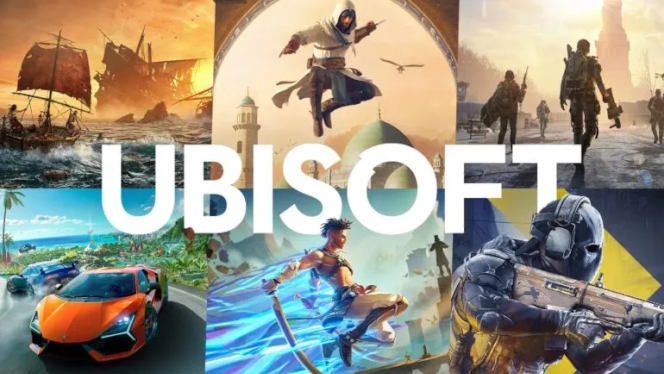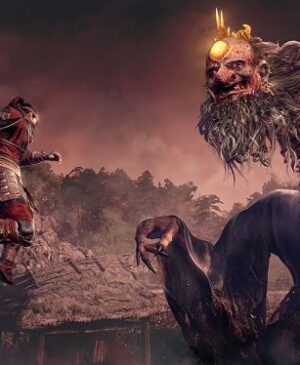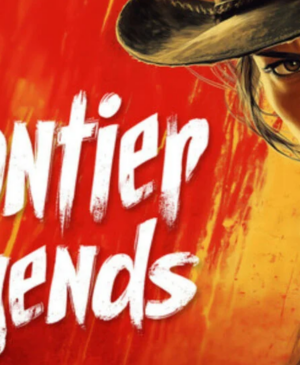Ubisoft is once again facing uncertainty, as recent failures and financial woes have sparked renewed speculation about a possible sale – but this wouldn’t be the first time the French publisher had to fend off a corporate giant. Years ago, Vivendi came dangerously close to taking control of the company through a hostile takeover.
Ubisoft has entered one of the most difficult chapters in its history. Following the disappointing performance of Star Wars Outlaws, the cancellation of XDefiant, and plummeting stock prices, the idea of a sale is once again being floated in industry circles. CEO Yves Guillemot acknowledged that different strategies are being explored to maximize the company’s assets. But Ubisoft has been here before – between 2015 and 2018, media conglomerate Vivendi made a serious attempt to acquire them outright.
Vivendi, which once helped create Activision Blizzard through a merger, began buying up Ubisoft shares at an alarming pace. The move pointed unmistakably to a hostile takeover attempt. Although the acquisition never materialized, the pressure was so intense that Guillemot used the company’s E3 2016 appearance to make a public stand for creative independence. The image of Ubisoft’s entire staff gathered on stage to reject Vivendi’s encroachment remains one of the most iconic moments in gaming industry politics.
Vivendi’s Attempt to Take Over Ubisoft
A hostile takeover, in simple terms, is a public acquisition attempt made without the approval of the targeted company’s leadership. In France, a shareholder needs to own at least 30% of a company to trigger such a bid – and Vivendi was getting dangerously close to that threshold.
It started in 2015 when Vivendi spent $140.3 million to acquire a 6.6% stake in Ubisoft. A year later, they bought 30% of Gameloft – a company founded by Michel Guillemot, Yves’s brother – eventually raising their share to over 70% by year-end. That deal was a clear example of a successful hostile takeover, and many feared Ubisoft would be next. In a leaked internal memo, Guillemot described Vivendi’s moves as “unsolicited and unwanted.”
At E3 2016, Ubisoft didn’t just showcase games like Watch Dogs 2, Ghost Recon Wildlands, and Steep. In a symbolic gesture, Guillemot brought the entire Ubisoft team on stage at the end of the presentation to send a message: Ubisoft was not for sale, and its creative freedom would be defended at all costs.
“I’d like to thank all the Ubisoft studios for their creativity and passion. I’d also like to thank all the players. We’re here because of you. We love you because you always push us to do better. This year marks Ubisoft’s 30th anniversary – 30 years in the greatest industry in the world. I love video games because true innovation happens when teams and players are free to create, to take risks, to express themselves. That’s what brought us here, and it’s what will carry us into the next 30 years and beyond. Because when you’re free, there is no failure – only the future.”
Ubisoft Bought Back Its Freedom – But for How Long?
Vivendi continued its push, eventually increasing its stake in Ubisoft to 27.3% – dangerously close to the threshold required to proceed without the company’s consent. Following Activision Blizzard’s separation from Vivendi in 2013, the media group was eager to find new gaming ventures, and Ubisoft had become a prime target.
But in 2018, the saga came to an end. Ubisoft and Vivendi struck a deal: Vivendi agreed to sell off all its shares for a total value of $2 billion. Most of the stake was reclaimed by the Guillemot Brothers SE, while other portions went to the Ontario Teachers’ Pension Plan (3.4%) and Tencent (5%). Although Vivendi exited the scene, they didn’t lose money – their total investment of $750 million had turned into a significant profit.
Ubisoft had survived – for the time being. But in the years since, the company has struggled. A string of underwhelming releases and growing dissatisfaction among players has eroded its reputation. Unlike in the Vivendi era, Ubisoft is no longer viewed as a victim of outside pressure. Many now believe that the publisher’s problems are the result of its own decisions. As history has shown, however, everything can change overnight. And today, once again, the company stands on uncertain ground.
Source: 3djuegos







![[TGA 2025] Star Wars: Galactic Racer Focuses on High-Stakes Podrace Runs [VIDEO]](https://thegeek.games/wp-content/uploads/2025/12/theGeek-Star-Wars-Galactic-Racer-302x180.jpg)








Leave a Reply